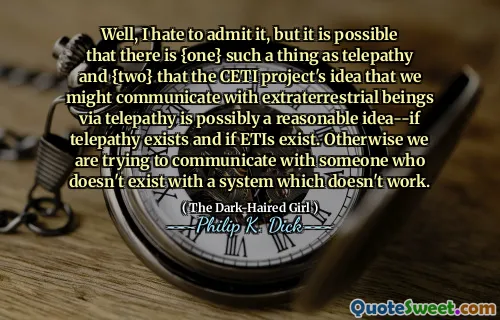
What sort of an imaginary voice is that? I asked myself, suppose Columbus had heard an imaginary voice telling him to sail west. And because of it he had discovered the New World and changed human history... We would be hard put to defend the use of the term 'imaginary' then, for that voice, since the consequences of its speaking came to affect us all. Which would have constituted greater reality, an 'imaginary' voice telling him to sail west, or a 'real' voice telling him the idea was hopeless?
In Philip K. Dick's "Radio Free Albemuth," the author explores the concept of voices—both real and imaginary—and their profound impact on human events. He poses a thought experiment about Christopher Columbus, imagining what might have happened if an imaginary voice had encouraged him to sail west. This prompts a reflection on the nature of reality and the outcomes that arise from such influential suggestions, regardless of their origin.
The passage challenges the conventional understanding of what is deemed 'real' by suggesting that the effects of an imaginary voice may be more significant than a real one that promotes doubt. If Columbus had followed this imaginary directive and transformed history, one might reconsider the label of 'imaginary' altogether. This philosophical inquiry invites readers to think critically about belief, influence, and the definitions of reality itself.










